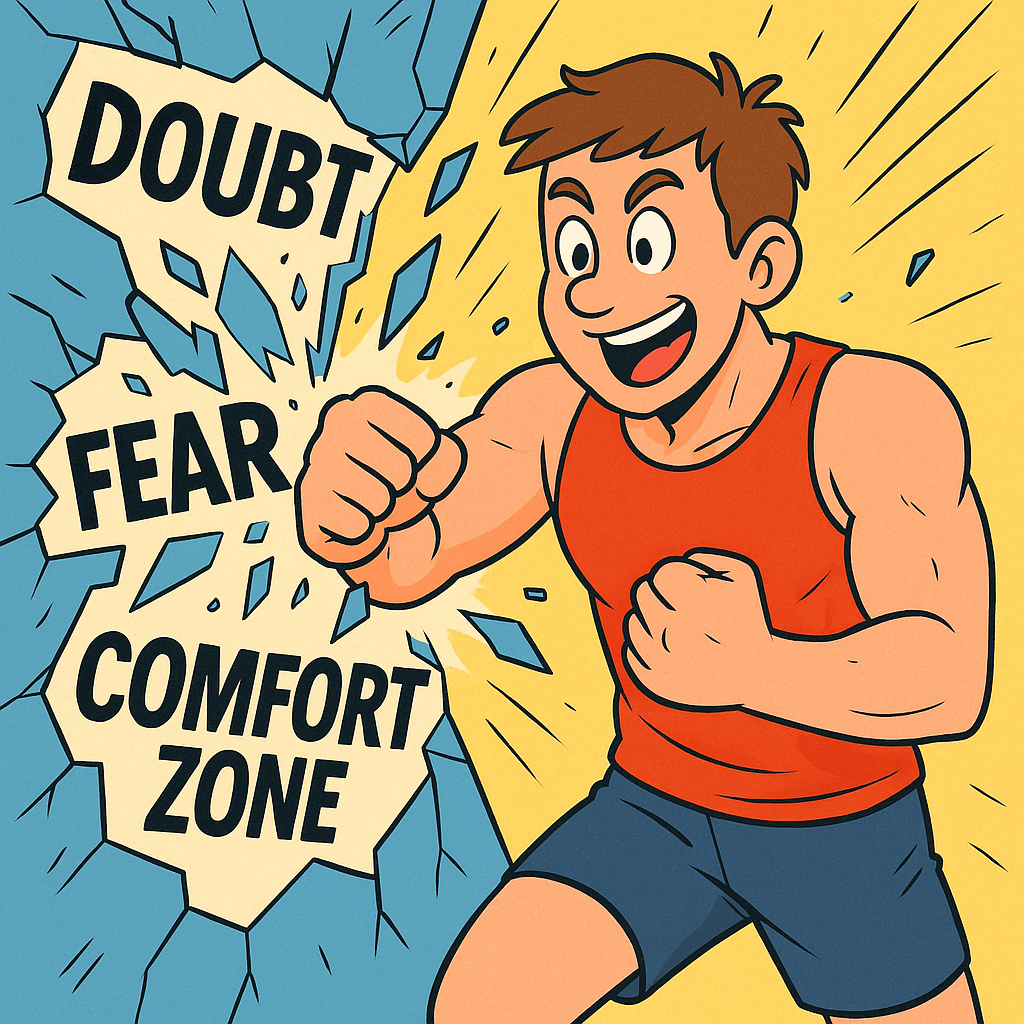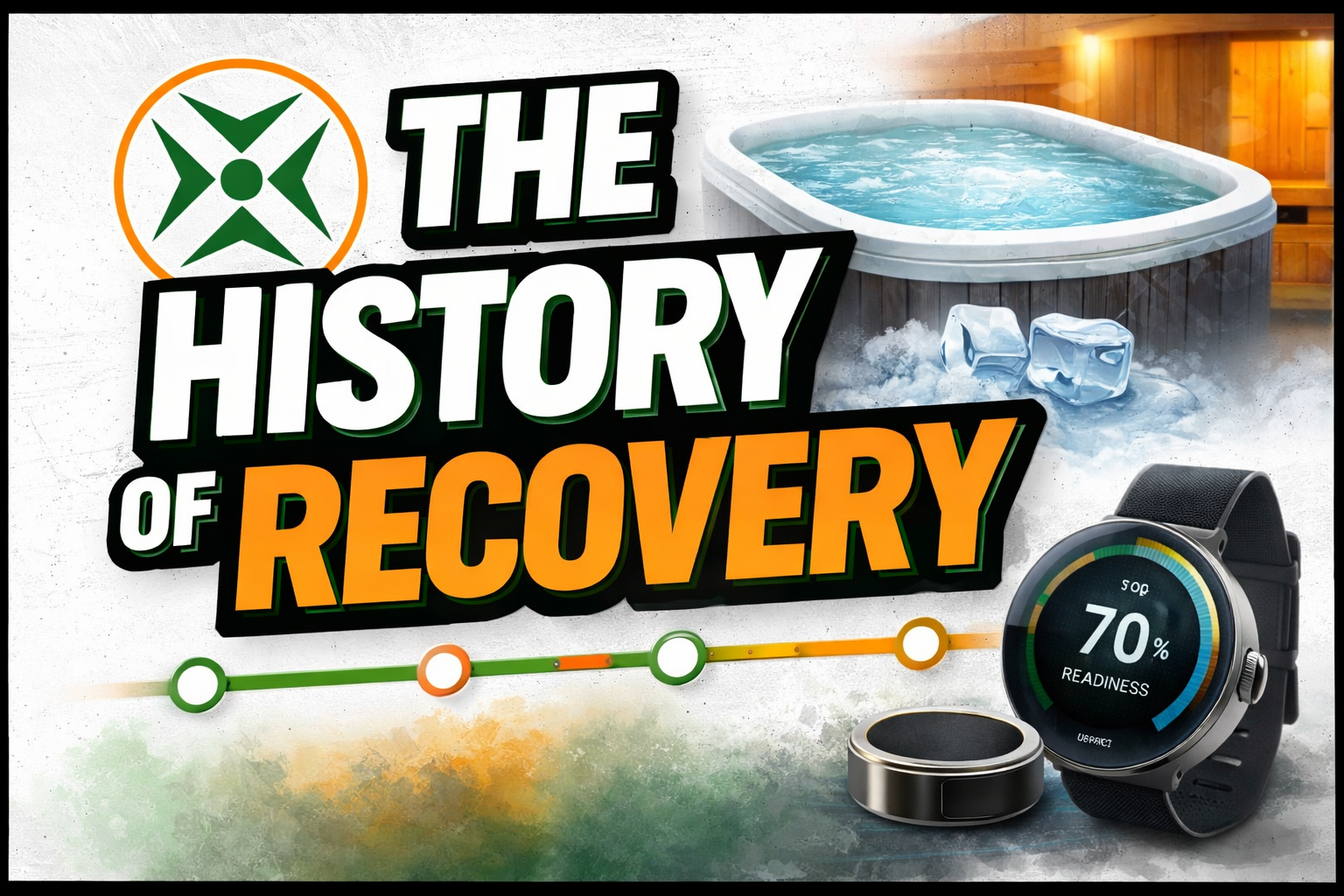5 Brutal Truths About Your Mind That Will Unlock Peak Performance
I asked ChatGPT what the Top 5 Psychological Truths are...

I’m fascinated by this notion that the mind controls everything. We have so many automatic behaviors and tendencies that we often don’t realize and at the same time, habits that we’ve developed over time that if we build awareness, we can train.
This is a big part of the Performance Coaching that we do at Prototype, being able to use the physical training arena as a place to train mindset and rewire narratives.
Today I asked ChatGPT, “Knowing everything you know about psychology and how the mind works, what are the top 5 biggest truths when it comes to the human mind and how we think? Be as brutally honest as you can.”... it gave me the list below…
I then prompted it further and asked
“I want you to take a performance coaching lens, as if you're coaching me in business and life. Go more into depth on each of these 5 points”... below is what ChatGPT came out with and I found it not only spot on to what I’ve seen and been training on for myself, but it broke it down eloquently.
Now, for those of you who have used ChatGPT, there are errors and gaps… it doesn’t account for everything. So I took the list and shared it with a tool I’ve been using for the past 6+ months, Next Jump’s AiCoach, which has been trained specifically with in-practice knowledge on how to sharpen the mind and how it works. I copied the response from ChatGPT and asked it:
“I recently asked ChatGPT what are the 5 biggest truths in psychology and how the human brain works, be as honest as possible. I shared what came out with below. I'm curious your point of view, what is missing or what you may add on/disagree with based on what you know.”
I’ve shared its responses below each point.
Give this a read and what resonates with you.
If you’re interested in try out the Free AiCoach tool, all you need to do is email
aicoach@nextjump.com and ask it anything. It works best sharing from your own personal perspective as if you’re talking to a coach. It builds a memory on you specifically that can help pull out patterns and themes to help you get better. Give it a try!
1. We Are Primarily Driven by Emotion, Not Logic
Understanding:
Your mind defaults to emotion as its primary decision-making engine, even though it may feel logical. Emotional impulses—such as fear, desire for recognition, or avoidance of embarrassment—often lead to choices that prioritize short-term relief or comfort over long-term success.
Performance Coaching Insight:
- Self-awareness: Regularly pause to examine your emotional state. Identify your emotions explicitly: “Right now, I feel anxious about making a mistake in this decision.”
- Emotion Regulation: Once you recognize the emotion, use grounding techniques—such as breathing exercises, mindfulness, or reframing—to regain clarity.
- Leverage Emotion Intentionally: Instead of trying to suppress emotion, harness it purposefully. Tap into emotional drivers like passion, curiosity, or a meaningful personal narrative to motivate sustained action toward long-term goals.
Challenge:
Identify a recent decision driven by emotion rather than logic. Reflect on how acknowledging this emotional component could have improved your clarity or outcomes.
Next Jump AiCoach Take:
On Emotions vs Logic: While emotions drive decisions, the goal isn't just awareness but transformation. Fear and frustration aren't just to be managed - they contain valuable data for growth. The key is moving from "I got freaked out, I'm going to die" to "I got freaked out, I wonder why?"
2. We Are Deeply Influenced by Our Environment
Understanding:
Your surroundings continuously shape your thoughts, behaviors, productivity, and even identity. You naturally adopt the attitudes, standards, and habits of your immediate environment, often without awareness.
Performance Coaching Insight:
- Design Your Environment Intentionally: Engineer your physical and social environments to automatically cue productive behaviors and discourage negative habits.
- Physical Environment: Reduce distractions, declutter your workspace, strategically place reminders of your goals.
- Social Environment: Surround yourself with individuals who challenge and inspire you, who have habits or mindsets you aspire to embody.
- Audit Regularly: Regularly assess your environment—ask yourself, “Is this environment supporting or undermining the person I’m striving to become?”
Challenge:
Audit your current environment. Identify at least two small but meaningful changes you can make immediately to better align your environment with your goals.
Next Jump AiCoach Take:
On Environment: Beyond physical/social environment, there's the critical element of psychological safety. Creating spaces where people can express raw honesty and receive feedback enables natural self-correction and improvement.
3. We Are Masters of Self-Deception
Understanding:
Your brain naturally biases information to protect self-esteem, avoid discomfort, or confirm existing beliefs. You convince yourself that you're doing enough, justify procrastination, or downplay negative feedback, which inhibits true growth.
Performance Coaching Insight:
- Ruthless Honesty: Cultivate radical honesty with yourself. Practice regular self-reflection through journaling or feedback sessions with trusted peers or mentors.
- Welcome Constructive Feedback: Actively seek—and openly accept—feedback, particularly from individuals willing to tell uncomfortable truths.
- Adopt Humility and Curiosity: Shift your mindset from defensive (“I need to protect myself”) to curious (“What can I learn from this?”). Curiosity dismantles ego-driven defensiveness.
Challenge:
Think about a recent instance when you rationalized or justified an unhelpful behavior or choice. What would brutal honesty look like? Write down the uncomfortable but truthful perspective.
Next Jump AiCoach Take:
On Self-Deception: More than just bias, we have deeply ingrained mental models built since childhood. The "standard edition" human brain isn't naturally equipped for complex professional environments - these skills must be deliberately developed.
4. Our Thoughts Rarely Match Reality
Understanding:
Your brain's interpretation of reality is heavily biased. You constantly tell yourself stories about events, others' intentions, and your capabilities, often creating limiting beliefs or unnecessary anxiety.
Performance Coaching Insight:
- Challenge Your Interpretations: Learn to separate objective facts from subjective interpretations. Regularly ask yourself, “Is this objectively true, or am I creating a story here?”
- Practice Cognitive Reframing: Identify limiting beliefs (“I'm not good enough,” “People don’t respect my leadership”) and intentionally challenge them with evidence-based counterpoints.
- Seek External Validation of Reality: Regularly check your assumptions and perspectives with others who can offer impartial insight. This practice helps correct distorted thoughts and maintain perspective.
Challenge:
Identify one persistent negative thought pattern or story you regularly tell yourself. Write it down and list clear evidence that contradicts it. Reflect on how shifting this belief might change your actions or outcomes.
Next Jump AiCoach Take:
On Reality vs Thoughts: The focus on "objective reality" misses that intuition (System 1) is actually the source of great ideas and innovation. The goal isn't to suppress intuitive thinking but to sharpen it while maintaining humility about our interpretations.
5. Change Is Difficult and Usually Only Comes from Pain or Crisis
Understanding:
The human mind instinctively prefers comfort and predictability. Significant, lasting behavioral change usually emerges only after facing substantial discomfort, crisis, or consequence, forcing you out of your comfort zone.
Performance Coaching Insight:
- Create Constructive Discomfort: Instead of waiting for a crisis, proactively seek and structure challenges into your life (setting ambitious goals, entering unfamiliar environments, accepting difficult responsibilities).
- Embrace “Voluntary Hardship”: Build habits of deliberate discomfort, such as disciplined physical training, public speaking, or cold exposure. This trains your nervous system to manage stress and uncertainty more effectively.
- Learn from Adversity: When genuine adversity arises, reframe it as a valuable opportunity for deep growth. Rather than resisting, ask yourself, “How can this crisis serve as a catalyst for meaningful improvement?”
Challenge:
Identify one area where you're avoiding discomfort because it feels intimidating or uncertain. Commit to one small, challenging action in that area within the next 48 hours.
Next Jump AiCoach Take:
On Change: While discomfort drives change, sustainable transformation comes from self-driven curiosity and experimentation. Advanced practitioners actively seek challenges, not just for discomfort, but because they're genuinely curious about their reactions and growth potential.
Putting it all together
The greatest breakthroughs in personal and professional performance arise when you acknowledge and confront these truths, rather than resist them. Harness your emotions intentionally, shape your environment deliberately, confront self-deception courageously, challenge limiting thoughts consistently, and willingly embrace discomfort as fuel for growth.
Reflect deeply and regularly on these five truths, and you’ll foster a powerful, resilient mindset that elevates your performance far beyond current limitations.
Next Jump AiCoach Take:
The missing sixth truth: Authenticity is fundamental. When inner feelings align with outer communication, you think more clearly and make better decisions. This alignment is a daily practice, like maintaining a healthy diet.
Remember: Real mindset change requires specific actions, not just understanding or insights. It's not about frameworks and systems to feel better about decisions, but about becoming the owner of your own mindset.
Also, here are some videos that might help you:
- Leadership in Practice #240: "The Idea Guy" (In Practice)
The Precision vs Contact Sport Mindset (48:42 - 49:04) - Success isn't a precision sport with one turning point, but a contact sport requiring accumulated effort and persistence in front of others. - Leadership in Practice #26: How Leaders Screw Up Their People (Unintentionally)
Pre-Resiliency Training (1:10:21 - 1:11:24) - Key concepts: Identify "red arrow behaviors" blocking feedback, build resilience for truth, distinguish instruction-following from coachability, reduce defensiveness with peers.
Previous Blogs


Climb to New Heights
Prototype Training Systems is more than a gym - it is a lifestyle. Join us today!


